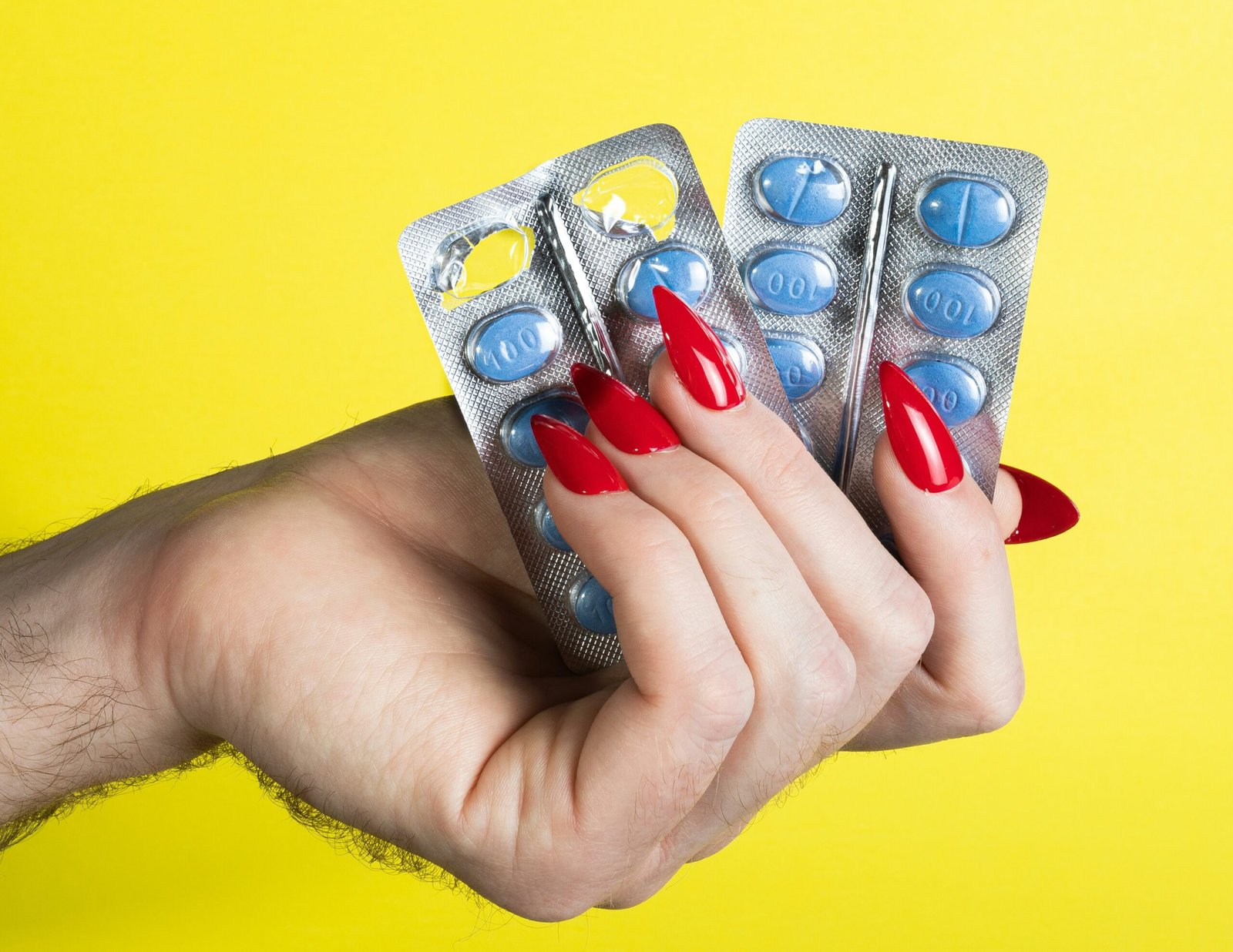Sexual health is a vital component of overall well-being, and it is essential to address any concerns or issues that may arise. Many men may feel uncomfortable discussing their sexual health, but it is important to remember that you are not alone. There are millions of men worldwide who face similar challenges and seek solutions to improve their sexual experiences.
One of the first steps in achieving optimal sexual health is understanding the factors that can affect it. A variety of physical, psychological, and lifestyle factors can impact a man’s sexual function and desire. These factors can include stress, anxiety, relationship issues, hormonal imbalances, chronic health conditions, and certain medications.
By addressing these underlying factors, it is possible to improve sexual health and enhance overall well-being. This blog post will explore various strategies and techniques that can help men overcome these challenges and achieve a satisfying sex life.
One important aspect of men’s sexual health is performance. Many men may experience concerns about their ability to achieve and maintain an erection, commonly known as erectile dysfunction (ED). ED can have a significant impact on a man’s self-esteem and intimate relationships. However, it is important to remember that ED is a common condition and can be treated effectively.
In this article, we will discuss various treatment options for ED, including lifestyle modifications, medications, and therapies. Additionally, we will provide practical tips and techniques to help men improve their sexual performance and regain confidence in the bedroom.
Another crucial aspect of men’s sexual health is libido, or sexual desire. Many factors can affect libido, including stress, fatigue, hormonal imbalances, and relationship issues. We will explore the causes of low libido and provide strategies to boost sexual desire naturally.
Furthermore, we will delve into the importance of communication in sexual relationships. Open and honest communication with your partner is essential for a healthy and satisfying sex life. We will provide tips on how to discuss sexual concerns with your partner and work together to find solutions that meet both of your needs.
Lastly, we will touch on the importance of self-care and overall wellness in achieving optimal sexual health. Taking care of your physical and mental well-being can have a positive impact on your sexual experiences. We will provide guidance on maintaining a healthy lifestyle, including exercise, nutrition, stress management, and self-care practices.
By addressing the various aspects of men’s sexual health, this blog post aims to empower men to take control of their sexual well-being and enjoy a fulfilling and satisfying sex life. We hope that the information provided will serve as a valuable resource and guide in your journey towards sexual wellness.
Understanding Men’s Sexual Health
Before we dive into the tips and strategies, it is important to have a basic understanding of men’s sexual health. Sexual health encompasses a range of factors, including physical, mental, and emotional well-being. It is influenced by various factors such as hormones, lifestyle choices, and overall health.
Many men experience occasional difficulties with sexual performance or desire, and this is completely normal. However, if these issues persist and start affecting your overall quality of life, it may be time to seek help and make some positive changes.
One important aspect of men’s sexual health is the role of hormones. Testosterone, the primary male sex hormone, plays a crucial role in sexual desire and performance. As men age, testosterone levels naturally decline, which can lead to a decrease in sexual desire and performance. However, low testosterone levels can also be caused by other factors such as obesity, chronic illness, or certain medications.
In addition to hormones, lifestyle choices can also have a significant impact on men’s sexual health. Poor diet, lack of exercise, excessive alcohol consumption, and smoking can all contribute to sexual difficulties. These unhealthy habits can affect blood flow, hormone production, and overall physical and mental well-being, all of which are important for a healthy sex life.
Furthermore, men’s sexual health is closely linked to their overall health. Conditions such as diabetes, heart disease, and obesity can all have a negative impact on sexual function. It is important for men to take care of their overall health through regular exercise, a balanced diet, and regular check-ups with their healthcare provider.
Another important aspect of men’s sexual health is the role of mental and emotional well-being. Stress, anxiety, depression, and relationship issues can all contribute to sexual difficulties. It is important for men to address these underlying issues and seek support if needed. This may involve therapy, counseling, or making positive changes in one’s lifestyle or relationship.
In conclusion, men’s sexual health is a complex and multifaceted aspect of overall well-being. It is influenced by a variety of factors, including hormones, lifestyle choices, and overall health. If you are experiencing persistent difficulties with sexual performance or desire, it is important to seek help and make positive changes to improve your sexual health and overall quality of life.
Tips for Optimal Men’s Sexual Health
1. Maintain a Healthy Lifestyle
A healthy lifestyle is the foundation for optimal sexual health. Here are some key tips:
- Eat a balanced diet: Include plenty of fruits, vegetables, whole grains, lean proteins, and healthy fats in your diet. These foods provide essential nutrients that support overall health, including sexual health.
- Exercise regularly: Engage in moderate-intensity exercise for at least 150 minutes per week. Exercise improves blood flow, boosts energy levels, and enhances overall well-being. It can also help maintain a healthy weight, which is important for sexual health.
- Avoid smoking and excessive alcohol consumption: Both smoking and excessive alcohol intake can have a negative impact on sexual health. Smoking damages blood vessels and reduces blood flow, while excessive alcohol consumption can decrease sexual desire and impair sexual performance.
- Manage stress: Chronic stress can affect sexual desire and performance. Practice stress management techniques such as meditation, deep breathing exercises, or engaging in hobbies. Additionally, consider seeking support from a therapist or counselor if stress is significantly impacting your sexual health.
2. Communication is Key
Open and honest communication with your partner is crucial for a healthy sexual relationship. Discuss your desires, concerns, and any changes you may be experiencing. This will help create a supportive and understanding environment.
It is also important to communicate with your healthcare provider. They can provide guidance, address any concerns, and recommend appropriate treatments or interventions if needed. Regular check-ups can help identify and address any underlying health conditions that may be affecting your sexual health.
3. Prioritize Sleep
A good night’s sleep is essential for overall health, including sexual health. Lack of sleep can lead to fatigue, decreased libido, and difficulties with sexual performance. Aim for 7-9 hours of quality sleep each night.
If you are experiencing sleep difficulties, try establishing a bedtime routine, creating a comfortable sleep environment, and avoiding electronic devices before bed. If sleep problems persist, consult with a healthcare professional to identify and address any underlying sleep disorders.
4. Practice Safe Sex
Practicing safe sex is not only important for preventing sexually transmitted infections (STIs), but it can also help alleviate anxiety and enhance sexual pleasure. Use condoms consistently and correctly, and consider regular STI testing if you are sexually active.
If you have concerns about erectile dysfunction or other performance issues, it is important to use barrier methods of contraception to prevent unwanted pregnancies while seeking appropriate medical advice. Your healthcare provider can help determine the underlying cause of any sexual health concerns and recommend appropriate treatments or interventions.
5. Consider Supplements and Natural Remedies
There are various supplements and natural remedies that may help support men’s sexual health. However, it is important to consult with a healthcare professional before starting any new supplements or remedies, as they may interact with medications or have potential side effects.
Some popular supplements for men’s sexual health include:
- L-arginine: This amino acid may help improve blood flow and erectile function. It works by increasing the production of nitric oxide, which dilates blood vessels and promotes better circulation.
- Ginseng: Known for its potential to enhance libido and sexual performance. Ginseng has been used in traditional medicine for centuries and is believed to have adaptogenic properties that can improve overall sexual health.
- Tribulus terrestris: Believed to increase testosterone levels and improve sexual desire. Tribulus terrestris is a plant extract that has been used in traditional medicine to enhance male fertility and libido.
- Zinc: Essential for testosterone production and overall sexual health. Zinc is an important mineral that plays a key role in the production of testosterone, a hormone that is crucial for sexual function and libido.
While these supplements may have potential benefits for men’s sexual health, it is important to remember that they are not a substitute for a healthy lifestyle and medical advice. Your healthcare provider can help determine if these supplements are suitable for you and provide guidance on proper dosage and usage.



